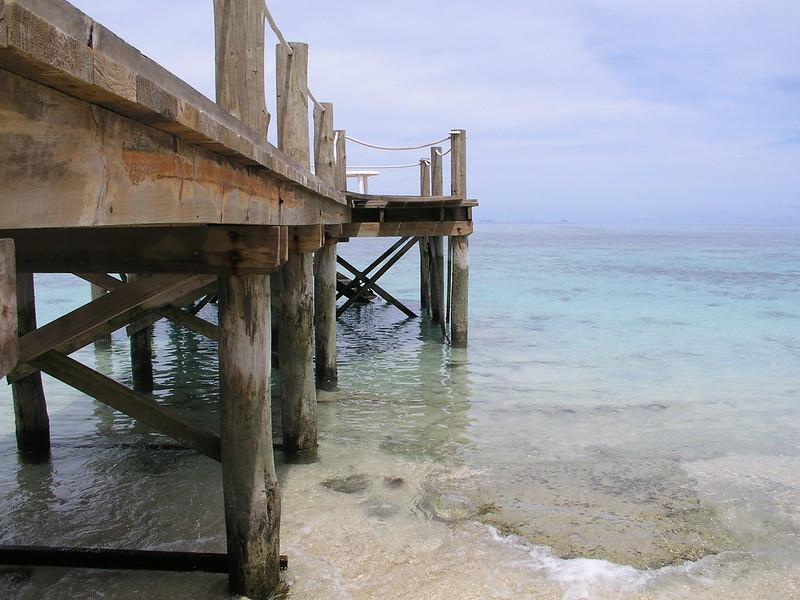
President Joe Biden’s two-day climate change summit, which was timed to coincide with Earth Day in the US and continues tomorrow, is intended to rebuild bridges with most of world that were damaged by four years of Donald Trump’s climate-denial policies. However, it also looks likely to burn a few bridges as well.
Biden took executive action on his first day in office to reverse the Trump withdrawal from the Paris climate accord and announced a virtual ‘Leaders Summit on Climate’ to galvanise a global effort to tackle the climate crisis.
Along with domestic policy reversals, Biden is looking to use the meeting to burnish American claims to leadership again on this critical international issue. In support of this aim, critics as well as proponents of international action have been included.
Australia’s Prime Minister Scott Morrison and Brazil’s President Jair Bolsonaro were among the 40 key leaders invited to participate. Significantly, China’s President Xi Jinping confirmed his attendance, which is expected to reinforce the agreement announced last week between China and the US to cooperate to take specific actions to reduce emissions.
The virtual format of the summit limits the corridor diplomacy that is a traditional benefit of international summits. These were restricted to the pre-summit negotiations to secure acceptance on items for the agenda.
There’s cautious optimism that the summit will have positive repercussions globally for action on climate change as well more effective collective leadership in meeting emissions targets, sharing technology and supporting developing states that may lose economically.
Whatever the global benefits for building bridges between the US and the rest of the world, the summit has already raised some diplomatic tensions regionally.
Fiji’s Prime Minister Josaia Voreqe Bainimarama, expected to be included on the elite list having been the president of the 2017 United Nations climate conference (COP23) and the most prominent regional leader internationally on climate change impact on small island states, was not invited.
He associated himself with the Biden agenda from day one when he congratulated the new president on his win, tweeting, ‘Together, we have a planet to save from a climate emergency.’ He also invited the incoming president to attend the August 2021 Pacific Islands Forum meeting which Bainimarama will chair.
Bainimarama has been personally hurt by his exclusion from the Biden summit. Tony Greubel, the acting head of the American embassy in Suva, was called to meet with Fiji’s former foreign minister Ratu Inoke Kubuabola for a ‘please explain’.
Pointedly, Ratu Inoke queried why David Kabua, president of the Marshall Islands, had been invited as the small islands’ voice at the summit at the expense of Bainimarama.
Ratu Inoke is now Fiji’s special envoy to the Pacific Islands Forum but, in January, he was a candidate for the position of secretary-general of Pacific Islands Forum Secretariat. Although his candidature was withdrawn before voting started, Fiji was widely believed to have helped deliver the job to Cook Islands’ candidate Henry Puna against Marshall Islands’ candidate Gerald Zackios.
Bainimarama may well have grounds for believing that extending the small island invitation to Kabua was a deliberate reprisal for Fiji’s role in the contretemps. There has been serious disappointment among some influential American analysts over the treatment of the Marshalls.
According to an alternative explanation for the summit snub, Xi’s acceptance will rub some salt into the wound that Bainimarama feels.
Graham Davis reports that Bainimarama once told the US’s ambassador to Fiji at a public function in Suva that China was a much better friend to Fiji than America was. This event occurred before Biden was elected, but the barb struck home with the US diplomatic establishment for being as gratuitous as it was undiplomatic.
A third possible explanation has less to do with Bainimarama’s absence than the Marshalls’ success in advocacy on the existential threat climate change poses for the Pacific’s low-lying islands.
From former foreign minister Tony de Brum’s ‘1.5 to stay alive’ slogan to promote awareness of the danger of exceeding 1.5°C in global warming to former president Hilda Heine’s and current president Kabua’s leadership, the Marshalls have offered very steady and visible island advocacy.
But whatever the reason, Fiji’s exclusion from Biden’s climate summit will complicate the bridge-building on climate change that the American policy changes are intended to achieve.
The US does want Fiji’s support broadly on a variety of regional issues including selling its new climate change message. Yet, the Biden administration seems unwilling to respond to attempts at manipulation by countries playing the ‘China card’.
Moreover, the administration is particularly responsive at the moment to Micronesian priorities since it is renegotiating compacts of free association with all three states.
The Biden embrace of significantly reduced carbon emissions and support for the Paris accord will repair American bridges with the Pacific island region with regard to climate change. However, the overall effect on regional relations may be mitigated by two factors.
The August Pacific Islands Forum leaders’ meeting will be fractured along a north–south cleavage as things stand now. The Biden summit could serve to deepen the rupture if Fiji takes umbrage over the politics rather the policies announced at the summit.
Second, Australia’s stance at the summit clearly lacked sympatico with the Biden message and, without any post-summit bridge-building of its own, Australia will go to the leaders’ meeting even more isolated and out of step with the region.